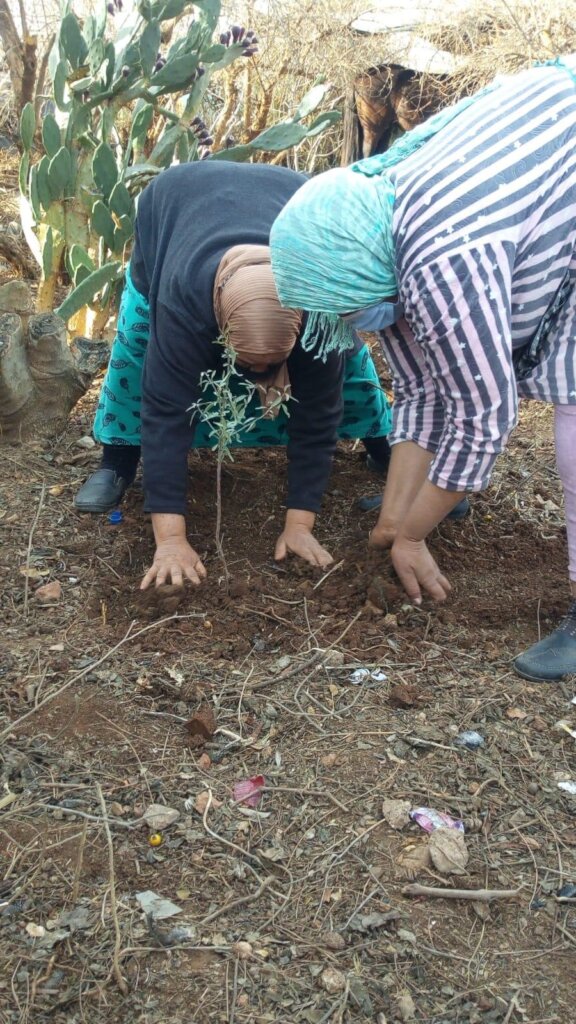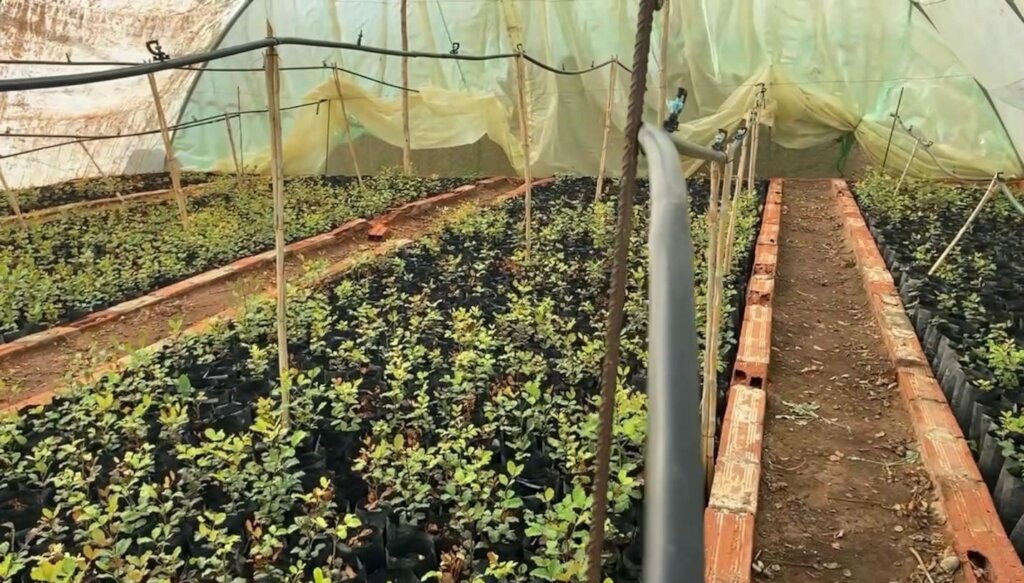By Connor Dunne | HAF intern
This is an article outlining the benefits to local communities of growing carob trees in Morocco.
On September 8, 2023, Morocco experienced a 6.8 magnitude earthquake, the largest in its modern history. Communities across the High Atlas Mountains were devastated, with thousands of lives lost and more than 50,000 houses destroyed. These communities have lost much of their property and possessions and have limited economic opportunities support with rebuilding. While the forces of nature were the cause of this vast destruction, they can also be harnessed to help rebuild these communities.
One of the most powerful forces of nature is trees, and the carob tree, which has been growing productively for millennia in the across Morocco and the Mediterranean, is the perfect nature-based solution to spur rebuilding after the earthquake. Known for its versatility and resilience, the carob tree can help bring back economic opportunity to the resilient mountains.
The carob trees have been economically useful since ancient Rome. Carob seeds were used as a form of measurement due to their stable weight, which led to a standardized method of determining the purity of metals such as gold. Today, the carob tree have more uses than ever including food products, ranging from chips to ice cream, and a variety of cosmetic and pharmaceutical products.
National authorities already understand the value of carob trees and are supporting projects to cultivate this super species. The High Commission of Waters and Forests has prioritized planting carob trees to promote reforestation and has partnered with communities and Moroccan NGOs to set aside unused plots of land in various communities where the carob tree can be planted. One area where there is a plan underway to harness carob trees is in the Takerkoust region.
The mountainous climate of Takerkoust is perfectly suited to host the carob tree. Carobs can grow in difficult positions such as sloped hillsides in the mountains and sandy or arid soils. Carobs also require very little maintenance once mature. Carob trees will produce fruit for decades, offering a new potential stream of annual revenue to the community. The Moroccan government’s plan to work with local NGOs and the community members will offer jobs and hope to residents of Takerkoust.
Carob cultivation is the ideal way to help spur development in these communities to fuel economic opportunities and overall rebuilding. In order to grow carob trees on the large plots of land, communities will have to install water systems to nourish young carobs and hire gardeners to maintain the land. Preparing the land for cultivation, installing water systems and hiring local experts as gardeners will bring many immediate jobs to the community.
Alongside immediate opportunities, the carob cultivation will offer jobs and income for generations to come. Once these trees are in full fruit production, cooperatives in the region will have a new stream of income. A single mature carob tree can produce as much as 100 kg of carob seeds per year, which are currently selling at over 25 Dirhams per kilogram. NGOs and community partners can work together to plant thousands of carob trees in Takerkoust with government support, which would offer millions in revenue for these communities over time and would help families rebuild in the short term and prosper long term.
Alongside offering both immediate and long-lasting economic benefits, proposals to plant carob trees in mountainous communities would help improve water infrastructure in these rural regions. In Takerkoust, the installation of the wells and solar powered water drip systems that would help nourish carob trees could also be used as a source of drinking water for the community. Furthermore, these irrigation systems can be harnessed to help rebuild the community terraces and seguias that were impacted by the earthquake. In time, the development of these irrigation systems can help the agricultural production of many plants and animals across the entire community.
Now more than ever, as drought and arid land plagues plant cultivation across Morocco and, as mountainous communities suffer from the most devastating earthquake in generations, Morocco should invest in sustainable and long-term economic solutions. Working in partnership with local communities and the Moroccan government, local NGOs are uniquely positioned to plant the seeds of this sustainable development opportunity. The carob tree’s versatility and economic benefits are the perfect combination to help Moroccans recover and rebuild their infrastructure. Takerkoust, which saw so much devastation, is the perfect place to implement this carob cultivation project.
Connor is a volunteer intern at the High Atlas Foundation, a Moroccan association and U.S. nonprofit organization founded in 2000. The High Atlas Foundation plants and monitors trees for carbon offset units as a financial catalyst for water infrastructure, women’s cooperatives, and community-designed initiatives.
Project reports on GlobalGiving are posted directly to globalgiving.org by Project Leaders as they are completed, generally every 3-4 months. To protect the integrity of these documents, GlobalGiving does not alter them; therefore you may find some language or formatting issues.
If you donate to this project or have donated to this project, you can receive an email when this project posts a report. You can also subscribe for reports without donating.
Support this important cause by creating a personalized fundraising page.
Start a Fundraiser
